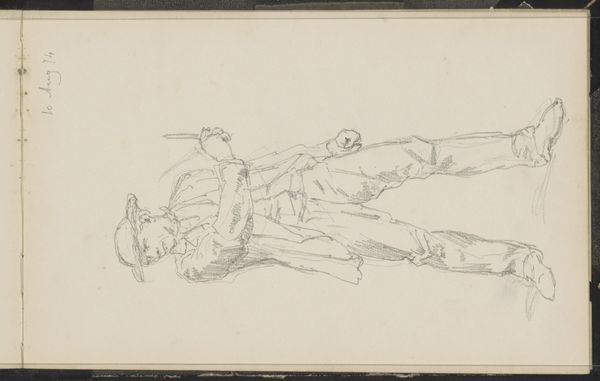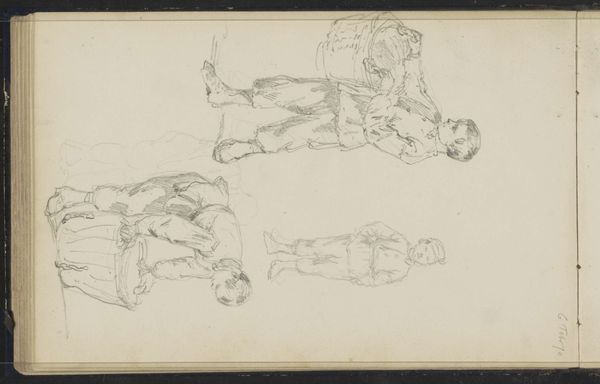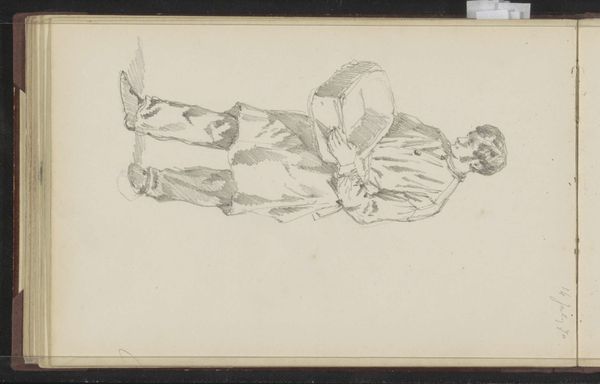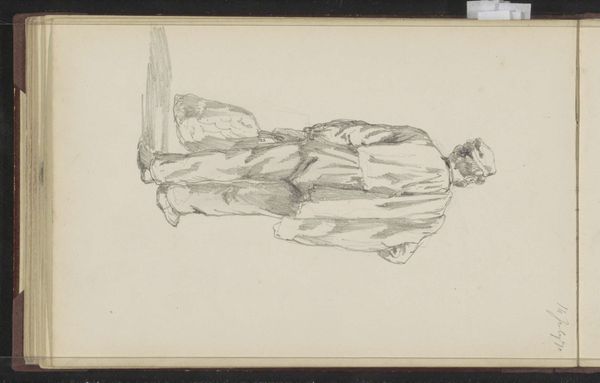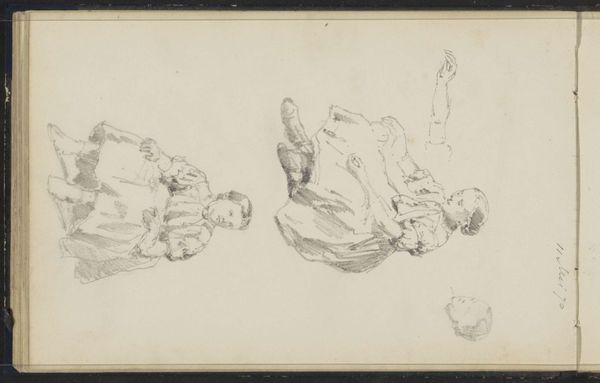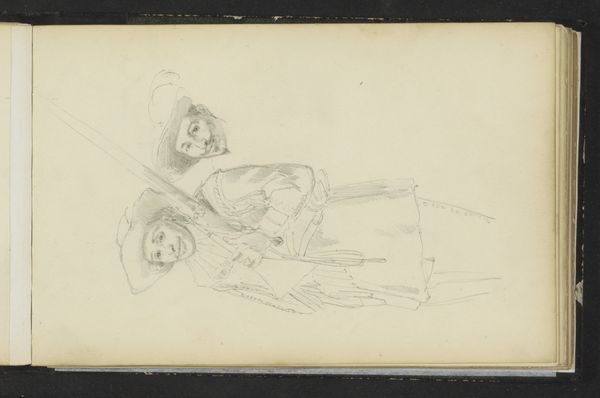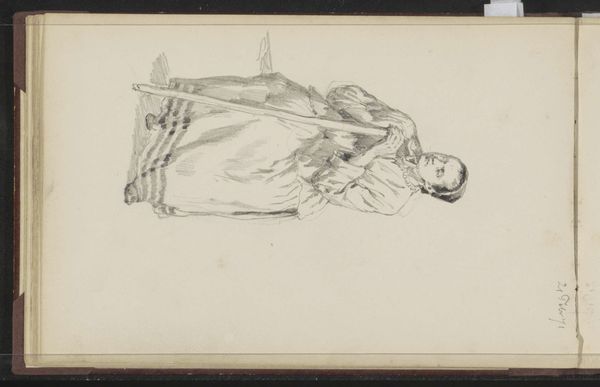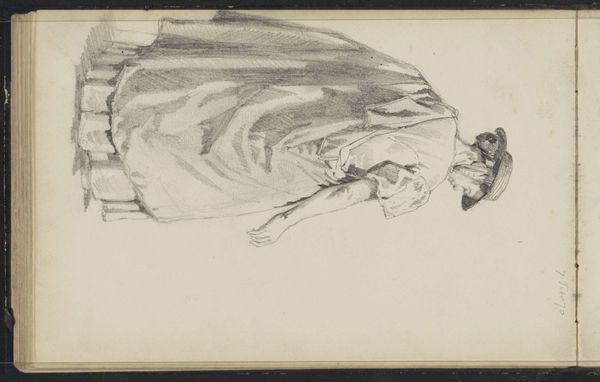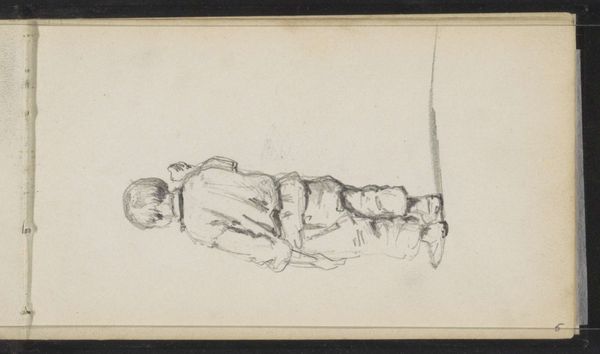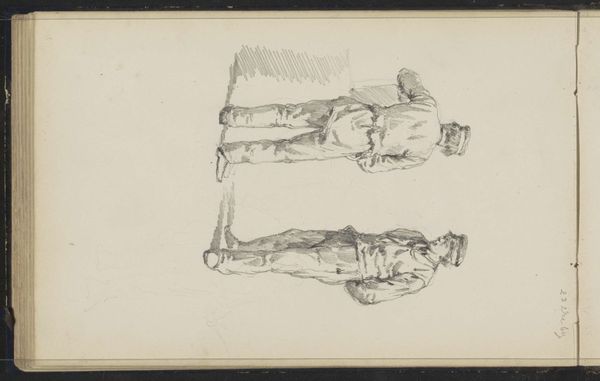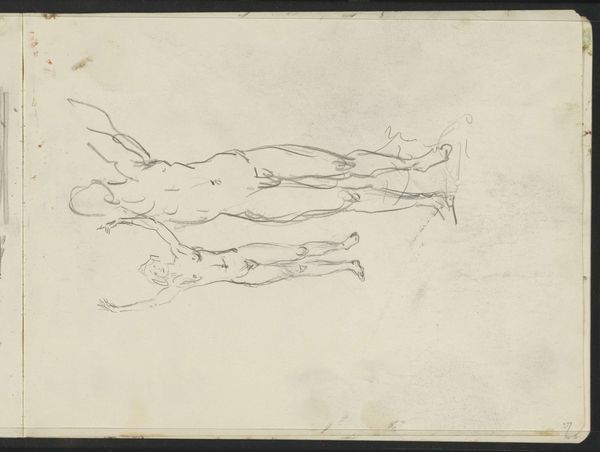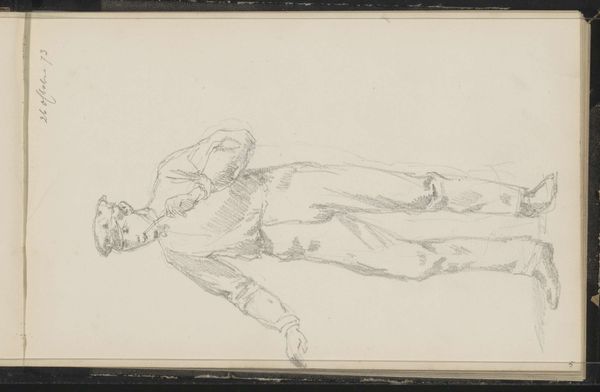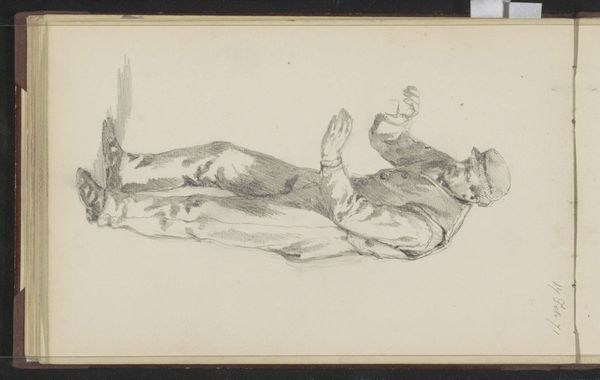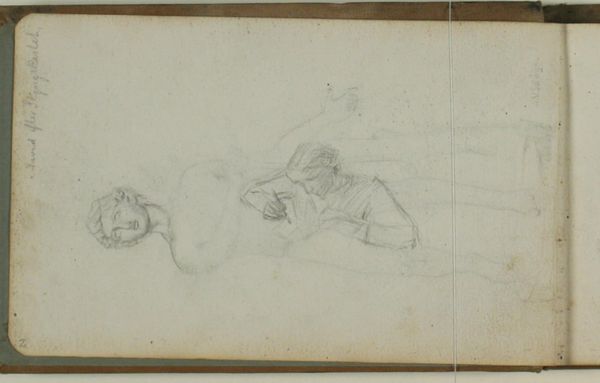
Copyright: Rijks Museum: Open Domain
Editor: Here we have "Two Men Conversing" by Cornelis Springer, probably created between 1870 and 1875. It's a delicate pencil drawing. It looks like a quick study, really informal and intimate. I’m struck by the everyday nature of it – two ordinary guys just chatting. What do you see in this piece? Curator: Well, on the surface it’s as you say, an informal sketch of working men. But it's crucial to consider how these seemingly ‘unimportant’ everyday scenes started gaining prominence in art during this period. Realism was emerging as a major force. This drawing, displayed now in the Rijksmuseum, wasn’t always deemed worthy of such institutions, was it? It points to a broader societal shift – the increasing recognition, or perhaps romanticization, of the working class. How do you see this piece fitting into ideas of labour or social class at the time? Editor: That's a great point! I hadn't thought about how even choosing to depict ordinary men is a political act in itself. And you are correct; these works of art were considered low-brow for many years before finding respect amongst serious artists and academics. They were considered illustrations or perhaps genre-paintings but certainly not gallery-level artwork. Do you think it has something to do with an industrialised society slowly starting to appreciate simpler ways of life? Curator: Precisely! As industrialization accelerated, representations of rural life and the common man became powerful symbols—sometimes deployed nostalgically, other times to critique the inequalities of the burgeoning capitalist system. Springer might be engaging in something like that with his artwork; these humble men are the main focal point instead of wealthy noblemen or some type of historical scene, and they exist on the canvas with no embellishment, raw and without apology. We are observing, through art, society looking at itself. Editor: This conversation really helps me think about art's relationship to society, not just what's on the surface. Curator: Indeed, it reminds us that even simple sketches can reflect profound social changes.
Comments
No comments
Be the first to comment and join the conversation on the ultimate creative platform.
